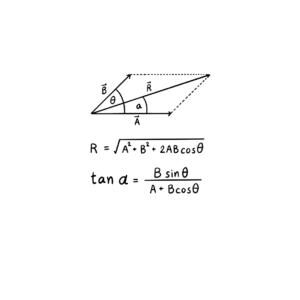Description
A Master of Science (M.Sc) in Electronics is an advanced degree program that focuses on the principles and applications of electronic systems and technologies. The program provides students with in-depth knowledge of electronic devices, circuit design, communication systems, and emerging technologies in the field of electronics and electrical engineering. Here?s an overview of the program, including core components, skills developed, and potential career paths.
Program Overview
Duration: Typically lasts 1 to 2 years, depending on whether the student is enrolled full-time or part-time.
Mode: Offered in various formats, including full-time, part-time, and online options.
Eligibility: Generally requires a bachelor?s degree in electronics, electrical engineering, computer engineering, or a related field, along with a satisfactory academic record.
Core Curriculum
The curriculum for an M.Sc in Electronics often includes core courses, electives, and a research component (thesis or project). Common subjects studied may include:
Analog and Digital Electronics: Study of electronic circuits, devices, and systems, including operational amplifiers, transistors, and integrated circuits.
Microcontrollers and Embedded Systems: Exploration of programming and interfacing microcontrollers in embedded applications for automation and control.
Signal Processing: Understanding the principles and techniques for analyzing and manipulating signals, including audio and image processing.
Communication Systems: Examination of various communication systems and protocols, including analog and digital communication techniques.
Power Electronics: Study of electronic systems for controlling and converting electrical power, focusing on applications in renewable energy and electric vehicles.
Control Systems: Exploration of automatic control theory and its applications in engineering systems.
VLSI Design: Examination of Very Large Scale Integration (VLSI) technologies, focusing on the design of integrated circuits.
Skills Developed
Technical Proficiency: Mastery of electronics principles, circuit design, and troubleshooting techniques.
Problem-Solving Skills: Ability to apply theoretical knowledge to design and analyze electronic systems effectively.
Programming Skills: Proficiency in programming languages used in electronics, such as C/C++ for embedded systems and MATLAB for analysis.
Research Skills: Competence in conducting research, analyzing data, and implementing findings in practical applications.
Communication Skills: Ability to communicate complex technical concepts clearly to diverse audiences through reports and presentations.
Career Opportunities
Graduates with an M.Sc in Electronics can pursue various career paths, including:
Electronics Engineer: Designing, developing, and testing electronic devices and systems in industries such as telecommunications, consumer electronics, and automotive.
Embedded Systems Engineer: Working on the design and implementation of embedded systems for various applications, including IoT devices and automation.
Control Systems Engineer: Developing and optimizing control systems used in manufacturing processes, robotics, and aerospace applications.
Communication Engineer: Engaging in the design and maintenance of communication networks and systems, including wireless communication and signal processing.
Research and Development Engineer: Conducting research in academic or industrial settings to develop new electronic technologies and innovations.
Power Electronics Engineer: Focusing on the design and application of power electronic devices and systems used in renewable energy and energy management.
Benefits of Pursuing an M.Sc in Electronics
Interdisciplinary Knowledge: Gain expertise in a rapidly evolving field that intersects engineering, computer science, and information technology.
Career Versatility: Graduates can work in various industries, including telecommunications, electronics manufacturing, automotive, and renewable energy.
Hands-On Experience: Many programs offer practical components, such as lab work or projects, providing experience with modern electronic design tools and techniques.
Additional Considerations
When considering an M.Sc in Electronics:
Accreditation: Ensure that the program is accredited and recognized by relevant organizations in the engineering field.
Research Opportunities: Look for programs with faculty involved in cutting-edge research that aligns with your interests, particularly in emerging technologies like IoT and AI.
Internship Opportunities: Seek programs that provide internship or co-op opportunities with industry partners for real-world experience.
If you have specific questions about the M.Sc in Electronics, its courses, or potential career paths, feel free to ask!









